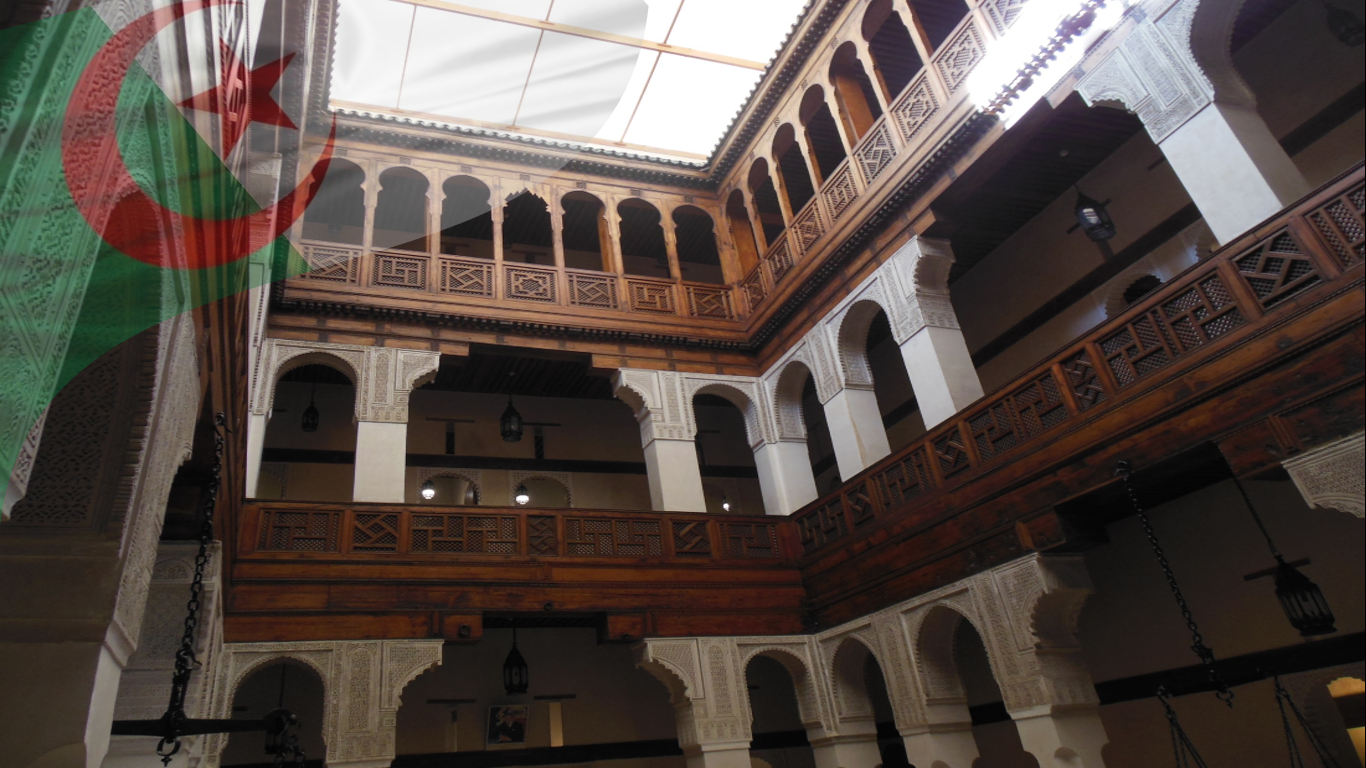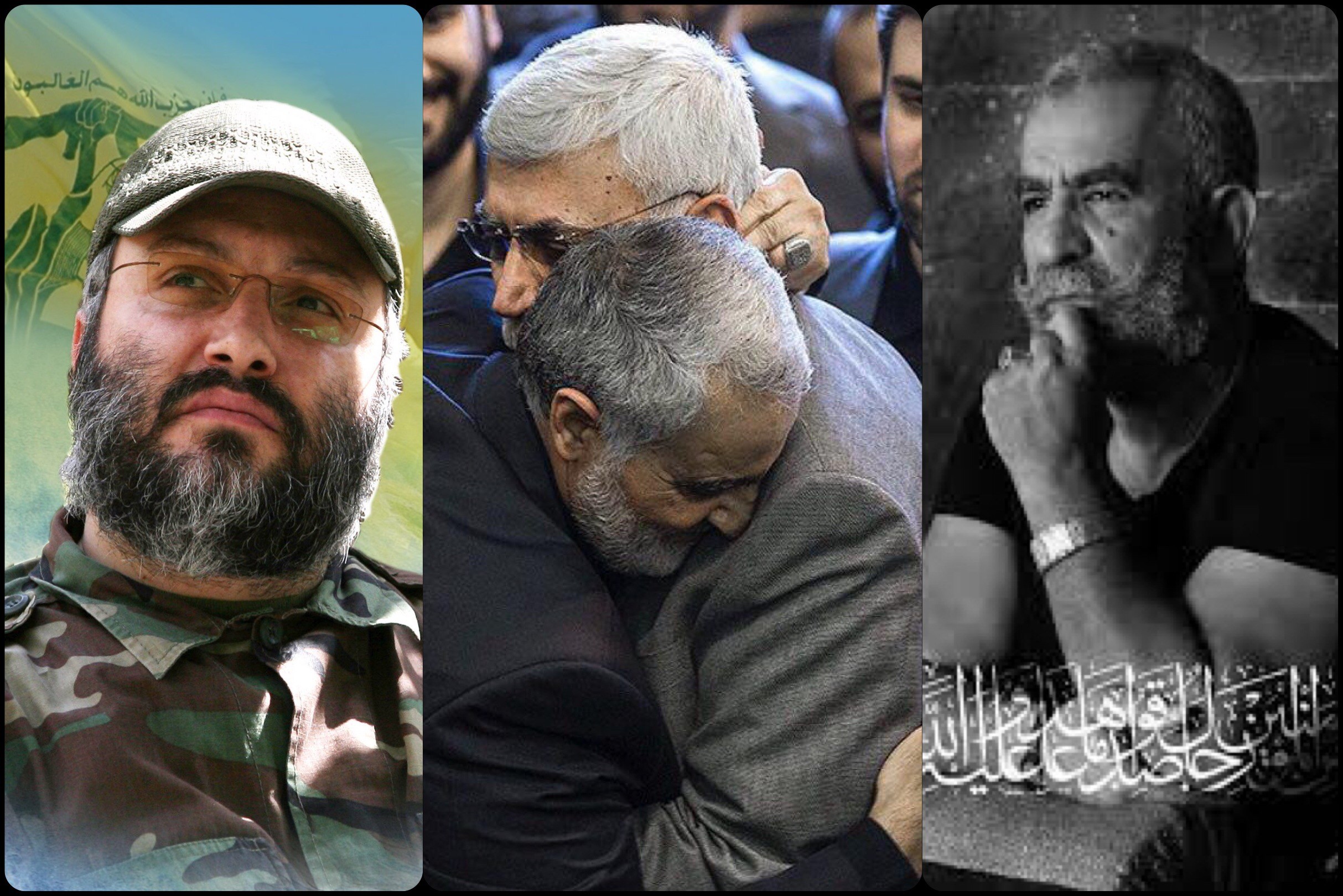We closed the last year two weeks ago as if the Middle East is about to calm, at least somewhat, thought might just be a calm before the thunderstorm. The escalation in Libya already casted shadow on that, but the bitter response to that supposition came sooner than anyone could anticipate. Thought the roots of the matter go back to the last days of the now passing year this week the escalation brewing since early summer has crossed a shocking line.
In the last hours of January 2 2020 Commander of the Iranian Revolutionary Guards Corps, Qāsem Soleymānī, and Abū Mahdī al-Muhandis, a senior commander of the Iraqi Popular Mobilization were assassinated by the Americans. Their car was blown up by missiles close to Baghdad airport, killing altogether 10 Iraqis and Iranians. The event came as a major step in the growing escalation, which started on 28 December 2019 by rockets being fired upon an American base at Kirkūk, Iraq. This attack, which left one American civil contractor dead and reportedly four American troops wounded resulted a US airstrike on 30 December on a base belonging to the al-Ḥašd aš-Sa‘abī in al-Anbār Province close to the Syrian border, killing 25 Iraqi soldiers and wounding dozens. That, especially since that was not the first atrocity of such kind, yet for the first time Washington clearly admitted the crime, lead to massive protests in Baghdad, which even penetrated the so far impregnable Green Zone, and reached into the American embassy. The al-Ḥašd aš-Sa‘abī, and specifically its directly attacked Iraqi Ḥizb Allah Battalions vowed a harsh response, which was probably on the way when the Americans assassinated its leader, Abū Mahdī al-Muhandis and Iran’s most influential field commander, a true legend, Qāsem Soleymānī. And the chain does not even stop here. In the early hours of 3 January, quite the similar fashion as a day before 5 people were killed in Baghdad in a drone attack against another organization of the al-Ḥašd aš-Sa‘abī by the Americans, though so far they are denying it, which clearly aimed another resistance commander, only this time it missed its target and murdered a healthcare staff. To raise the tension, almost as they were attacked and not the other way around, Washington announced to send fresh troops to Lebanon, officially to defend its embassy in Beirut, which is yet another unmistakable message that the US gears for war against the whole Axis of Resistance. Meaning today Iraq, tomorrow Ḥizb Allah, taking advantage of the absence of stabile government in both countries.
The cards has been severely reshuffled. The Iraqi government, already shaken and the PM resigned by American instigated protests, which worked so hard since int formation to keep a balance between Tehran and Washington, has been pushed by the outrage to demand the immediate withdrawal of the American forces from the country. For which, as we saw and shall recap here, it more than enough reason. Yet this might cause a massive war in the country as local allies of both sides will go to extremes to flex their muscles.
Iran has no choice, but to respond, as they vowed for it, yet shall be cautious not to give a reason for a direct NATO retaliation. Since it is clearly what the hawks in Washington strive for. At the same time they have to be mindful not to be carried away and lose sight of the other major fields of this proxy war in Lebanon, Syria, Yemen and Palestine.
Some celebrate now, like Netanyahu, who has the most to benefit if the regional war breaks out, many in the Gulf are understandably terrified, as the first response might fall upon them, while millions morn this legendary general. The general, who himself meant hope for millions resisting the American hegemony. Iranians are known to be cautious and mindful, therefore it is sure that the response will be clear and harsh. As guesses and evaluations go great lengths to determine the possible outcome, it is appropriate to see who was this person, what his death means to Iran and the region, and how close we have became to an all-out war. Which might not even stop in the region.
How we got so far?
Last year in a number of issues we dealt with the complex inner politics of Iraq, ever since the the first elected government since the victory over Dā‘iš took office early 2018. It was clear that however complex the situation is, the factions emanating from the al-Ḥašd aš-Sa‘abī, backed by Iran and not at all in friendly terms with the Americans, gained the upper hand. Meaning that it was only a matter of time until the Iraqi Parliament will be pushed to demand the withdrawal of the Americans, consequently ending the American presence in Iraq and securing the bridge between Iran and Lebanon. That law is now being discussed in the Iraqi Parliament, and got a new impetus. Since it will be extremely difficult for any formation however in favor of Washington and at odds with Iran, to stand against this motion after such a blatant violation of the Iraqi sovereignty.
This pattern of collusion between Washington and Baghdad was clear, and we shall recall that as early as July 2018 the US was planning a military coup in Iraq and to target the security commanders. During the summer the weight of the confrontation shifted to the Yemeni field and to the Gulf, but after the continued strikes on the Saudi oil facilities Tehran stood its ground. Things steadily moved to their favor as not only the Saudis were yielding, but the desperate attempts of Netanyahu backfired, the Syrian arms was gaining the upper hand against the last terrorist bulwark in Idlib and the border was reopened between Iraq and Syria with Iranian patronage.
That is how the newer attempts to block the growing influence of the resistance shifted once again into Iraq. A series mysterious drone attacks targeted the bases of the al-Ḥašd aš-Sa‘abī, which lead the Iraqi PM ‘Ādil ‘Abd al-Mahdī to carefully balance between the sides, though it was getting ever more clear that the reckless actions of the Americans will sooner or later spiral out of control. The matter was extremely serious, since even if the Americans were not directly involved in these attacks, as even mot Iraqi factions openly blamed Israel, by a bilateral security accord Washington was and still is responsible of the safety of the Iraqi airspace. So either they did it, or they contributed to the attacks. Either way the relations between Baghdad and Washington were unbearable. The Iraqi government started to buckle under the pressure and was getting ever more inpatient with the American presence, which for Washington is a key question to support its occupation in Syria and to keep up the pressure both on Iran and Turkey.
That chain of escalation was already targeting Iran directly. First with the infamous drone intrusion, which the Iranians downed swiftly, that the assassination attempt by their Gulf proxies already again Qāsem Soleymānī, and lately another drone hit attempt. It was clear that while Trump was trying hard to calm the tension, regardless of the Hollywood rhetorics, the hawks in the administration and the Pentagon were working to keep Tehran busy, while also focusing on the Iranian allies in the region to try to find a grip on the Iranians. The last milestone was the series of protests, unmistakable mirroring each other in Lebanon and Iraq, which did not succeed to shake the ground nor under the al-Ḥašd aš-Sa‘abī in Iraq, nor under the Ḥizb Allah in Lebanon, but managed to topple both governments. Which for Washington now has the benefit not to forced to deal with any firm governments, and have a relatively free hand to operate in both countries. To send forces as it pleases, move in and out as they wishes, and even apparently to murder as it wishes.
As the Americans tried hard to uproot Iranian presence in both countries it was only a matter of time until either the escalation spirals out, or the US withdraws from Iraq. It seems that the establishment, the deep state could not accept any scenario in which the American presence would be given up in Iraq and kept on poking the Iranian allies, mostly stockpiling assets in Iraqi Kurdistan, betting on the Kurds, just like in Syria.
That how we arrived to the current bloody chain of events. The key of many answers most probably lay in the first hit on the American base in Kirkūk on 28 December. It worths to mention that Kirkūk is a contested city, which during the war against Dā‘iš changed control several times between the Kurdish enclave and the central Iraqi forces. By the end the Kurds were expelled and the city was taken over mostly by the al-Ḥašd aš-Sa‘abī, but the Americans managed to wrest significant control. Consequently, with Kurdish support in the vicinity and with their ambitions still added to the equation Kirkūk became a major center of competition. The hit on the American base is still suspicious and probably for long we will learn nothing tangible about it. The Iraqis and the Iranian denied involvement, therefore revealed no details, which is absolutely fitting with the rules of this proxy war. Details, however, reveal that the base was a major weapons depot for the American troops in Syria, and from here recently a large number of US troops passed into Syria to reestablish their illegal occupation. If that is true it is fair to assume that the attack came a coordinated response to cross the American aggression into Syria, which was recently bombing Syrian oil facilities. Interestingly the Americans also revealed little on the matter, only admitting the death of “one American civil contractor” and the injury of 4 American soldiers. The Americans never revealed nor the purpose of the base, nor the identity and the importance of that mysterious “civil contractor”, but it is fair to assume that this was a valued target. Was it not, the Americans would have revealed much more, or would their response less harsh.
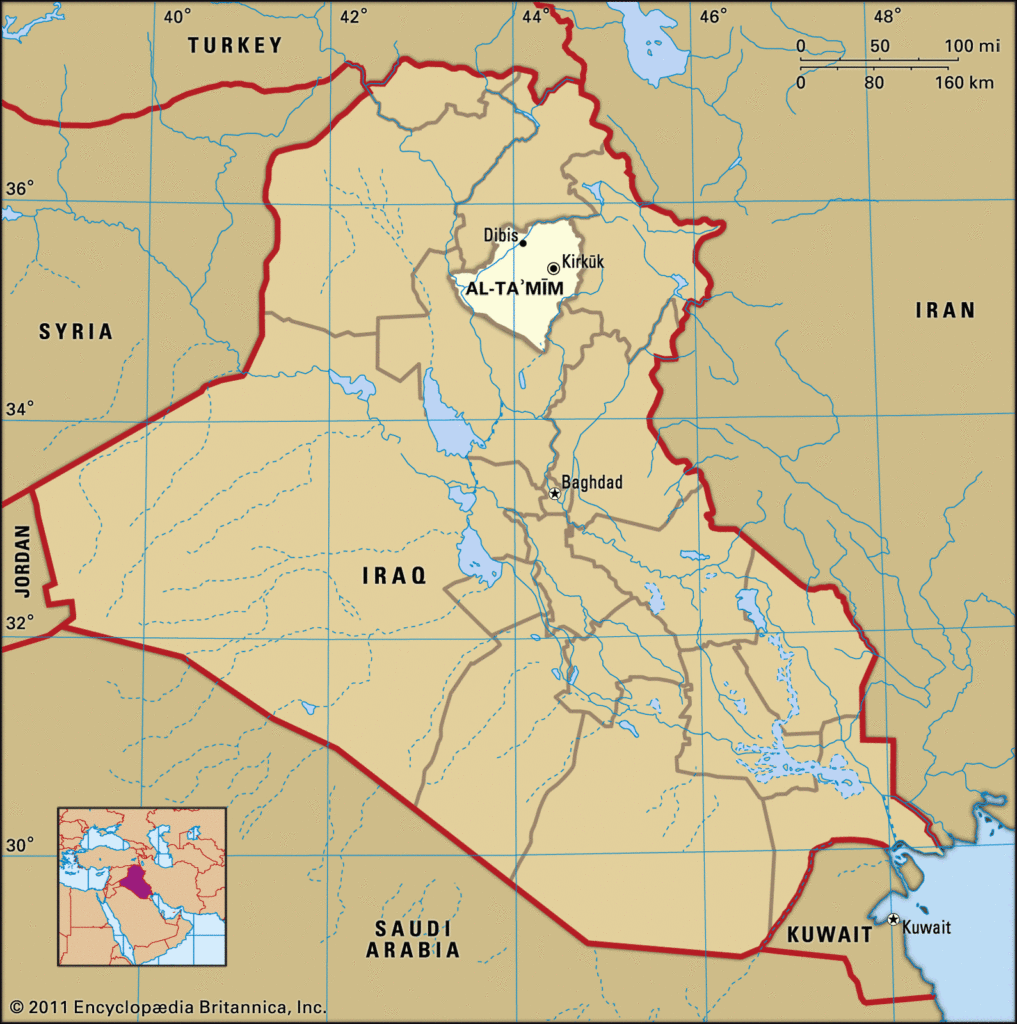
Whatever that was, it clearly hit a nerve. Washington, while practically revealing nothing about the hit, instantly blamed the Iraqi Ḥizb Allah Battalions within the al-Ḥašd aš-Sa‘abī and promised a harsh response. Which indeed came on 30 December, killing 25 Iraqi soldiers. Two things, however, are important to mention in this context. First, that the al-Ḥašd aš-Sa‘abī central command promised retaliation for the hits on its bases, for which the Americans in one way or another do bare direct responsibility. Politically that intention prompted a response so that the Iraqi government was to officially demanded the Americans to leave. Nothing was to stop this political step, which the Americans might choose to disregard, but nonetheless the political grounds would be shaken under their Iraqi presence. Since, unlike in the case of their absolutely illegal occupation in Syria, they do admit the legality of the Iraqi government, which they officially deem as an ally. Therefore a motion by the Iraqi Parliament cannot be disregarded just as easily as in Syria. Secondly, every detachment of the al-Ḥašd aš-Sa‘abī, with all its almost 60 components count under Iraqi law as part of the official Iraqi armed forces. Any aggression against them is by law an aggression against the Iraqi state. Consequently the attack on the Iraqi Ḥizb Allah Battalions’ base, which the Americans openly admitted, is an aggression against the Iraqi sovereignty and an act of war crime.
This American attack caused outrage in Iraq, with a two significant consequences. The protests going on for long weeks now, which did indeed managed to take momentum and topple the Iraqi PM, lost significance and the national sentiment shifted once again from being openly anti-Iranian to be violently anti-American. The other result was the wave of protests, which at the end even penetrated the American embassy in Baghdad. That on its own might not seem too significant, as the inner complex was not penetrated, sensitive documents were not taken, nor any diplomats or staff members were harmed, only evacuated for safety reasons. That might look humiliating, but clearly the symbolic hit was not here. The significance of the matter lays in the fact that the American embassy in Baghdad is in the so called Green Zone, a practical state within the state. That extreme high security zone was set up back in 2003 and for years was virtually impregnable to ordinary Iraqis. Life within the zone was almost completely sealed off from the surrounding areas, which caused much resentment by the Iraqis and became a symbolic of occupation and foreign tyranny. Now, in this protest on 31 December, the protestors broke this barrier with apparent ease. Meaning the formally untouchable mini-state was breached.
Was openly killing of 25 Iraqi soldiers not blatant enough came that brutal attack on Abū Mahdī al-Muhandis and Qāsem Soleymānī on the night of 2 January. That, however, was not at all unexpected. Partially, since as we saw there were already Americans strikes against the Iraqi soldiers, which for some reason the Western media keeps calling militias, as if they were not legal part of the Iraqi Army. Attempts were ongoing against General Soleymānī. And only a day before the attack the Americans were openly contemplating the assassination of Abū Mahdī al-Muhandis. The first news of the attack came late night of 2 January, which at that time “only” supposed the death of the Iraqi Ḥizb Allah’s spokesman. Hours later, however, came the shocking news that one of the most legendary figures of the resistance passed away.
The Americans keep up the pressure with newer brutal attacks and mocking tweets by Pompeo that Iraqis are celebrating the death of Soleymānī, and later even complaining that the world should thank them for eliminating a threat. Violations are now so tumultuous as if Washington openly plans to provoke a full-fledged war against the Iraqi state. Which could guarantee their chance to stay. That is likely to go on for some time, but in the meantime the Iranians are probably already planning a fitting bitter response. Given their last 40 years, Iranian cunning and ability to plan ahead should not be underestimated.
Heroes and symbols
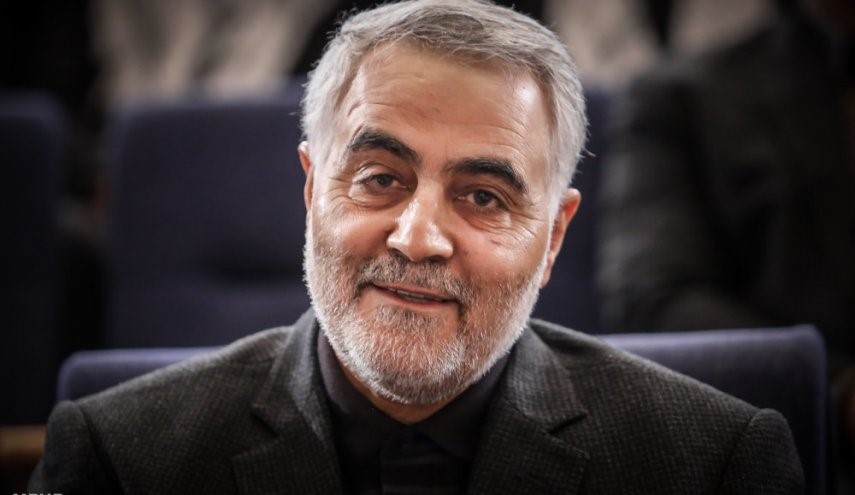
Who was Qāsem Soleymānī? This legendary commander was born in 1957 in the Province of Kermān and was still in his twenties in the time of the Islamic Revolution. He joined the newly formed Revolutionary Guard Corps (Pāsdārān), in which with his closest companion he formed the 41th Ta’r Allah (God’s vengeance) Brigade. That group lead many of the major engagements in the war with Iraq in the ‘80s, and these are commemorated in series of books. After the war he rapidly rose in ranks and in 1998 he took over the Jerusalem Forces within the Pāsdārān, which is an elite core in the organization specifically tasked to train and support allied groups and states abroad, or to perform special counter-terrorist operations abroad. Soleymānī held this post until his death and he was not only highly successful, but also immensely popular. He was tasked to retaliate to the Ṭālibān in Afghanistan after a whole Iranian consulate was slain in Mazār-e Šarīf in 1998. He aided Ḥizb Allah in its war with Israel in 2006, which only a few moths ago he recounted in an unprecedented lengthy interview. He held connections with the Palestinians, helped the Syrian and the Iraqi state forces against Dā‘iš and this way crossed many American plots in the region. Yet he was also tasked in 2012 to assist the government of Mursī in Egypt, which was closing to Iran at that time. By the end of the war with Dā‘iš he was already a regional phenomenon larger than life, who was general subjects of caricatures and public murals in Iran. Yet he was equally admired in the region by many allies of Iran or the resistance, given his modesty and that he regularly appeared in the front lines, moving back and forth between the different frontiers. He was, however, also relatively popular internally, even amongst those not in favor of the government, given his famous distance from the Pāsdārān leadership, especially with former commander Moḥammad ‘Alī Ğa‘afarī, which lead him and his organization almost separate within the Pāsdārān, directly responsible to Supreme Leader ‘Alī Hāmeneī. He was such a figure that he was decorated with medals unprecedented, and now upon his death, first time ever since the foundation of the Islamic Republic, the red flag of Yā- Tārāt al-Ḥosseyn, the ultimate symbol of revenge was raised in Qom for him.
Such a death is truly tragic, and there is nothing greater testimony for this that for days his death rule the news globally. However, is that indeed such a lethal blow to the Iranian state, or the Iranian sphere of influence? For a number or reasons it can firmly said that no. His follower, long time second of Soleymānī and a close associate, Esmā‘īl Qāānī was already appointed, who is also not any less capable, though much less famous or popular. But such blows are not unknown, especially in the last few years for the different sides of the resistance. In 2008 a similarly striking blow came, when a join CIA-Mossad operation assassinated ‘Imād Muġniyya in Damascus, a founding member of Ḥizb Allah, who was the head of operations and the commander in the successful war with Israel in 2006. His loss was equally tragic, operationally might even worse, but that did not mean the collapse of Ḥizb Allah, nor the loss in fighting capacity. That was well proven in the war on Syria, and recently by hitting back to Israel.
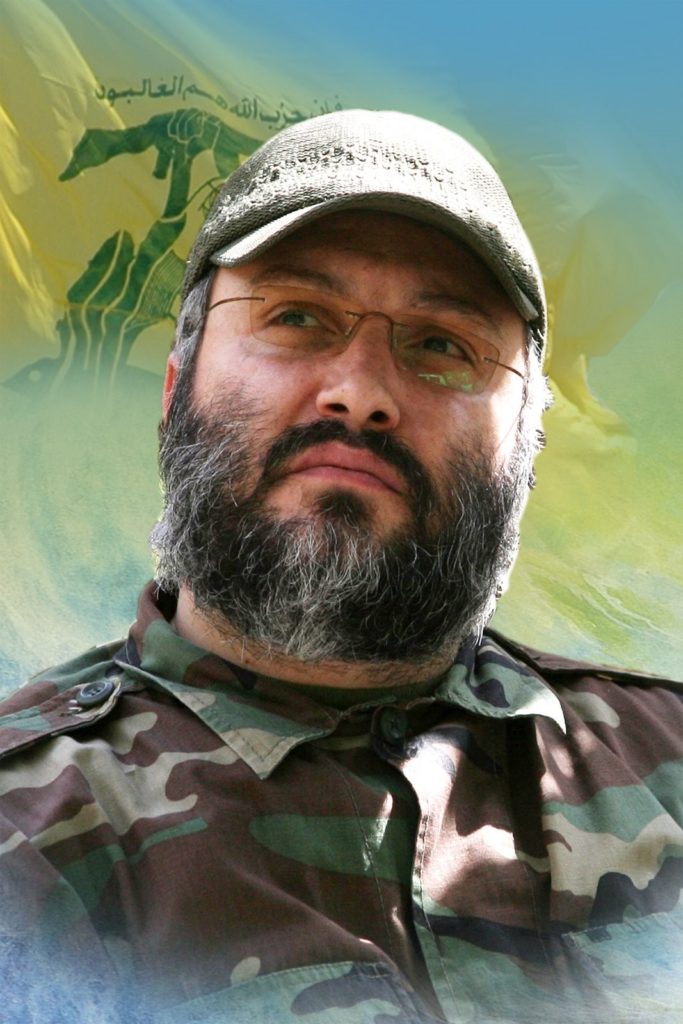
The Syrian Army knew many similar notable heroes during the war since 2011, many of them became equally legendary as Soleymānī. One such figure was Major-General ‘Iṣām Zahr ad-Dīn of the Syrian Republican Guards, whose speeches and cheerful character made him a very popular figure. He lead many successful operation in Ḥimṣ, around Damascus and he lead the defense of Dayr az-Zūr against Dā‘iš for more than three years. His death under suspicious circumstances in October 2017 caused shock in Syria, and still there is none, who equaled his fame and popularity. Yet, with his loss being a major blow, that did not weaken the resolve of the Syrian Army. With his death the Syrian Army did not stop to cause major blows to its enemies, and since than managed to liberate most of the country.
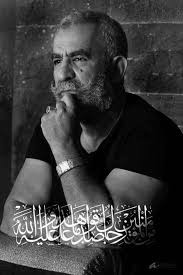
Died in action in October 2017
The loss of Abū Mahdī al-Muhandis in Iraq, the commander of the Iraqi Ḥizb Allah, who started his carrier in the Iraq-Iran war forming Shia support groups for the Iranian Army and was a close associate and personal friend of Soleymānī is an equally huge blow. But in one hand he was only one of the prominent figures within the al-Ḥašd aš-Sa‘abī along with such equally influential members as the still living Hādī al-‘Āmirī, and on the other his biggest mission to set a vast organization has already been accomplished.

What the American opinion centers greatly misjudge is that both the Axis of Resistance in general, and the components within are equally institutionalized and there is a whole mentality, what is commonly known as the “culture or resistance”. Unlike the random terrorist or resistance groups of the ‘60s and ‘70, or the highly personalized state structures in the Gulf, or Egypt, from where the Americans obtain the bulk of their first-hand experiences, these organizations are not built on individual. They do matter, they do boost moral and many times become icons, but there is a was operational network behind them. Meaning such losses, painful as they are, don’t mean collapse of structure. If there is, however, a field where Qāsem Soleymānī might prove irreplaceable is the vast network of his personal connections. In a sense he was the traveling envoy of the Iranian deep state, who was the interlocutor between that structure and the foreign sides, friends and foes alike. Losing such a person probably will not alter significantly the Iranian connections with their allies, but the opponents lost a moderating and reasonable middleman.
Why to do it?
In such assessment, the the assassination of Soleymānī does not change the equation significantly for the Americans. The Iranian positions did not change, nor the integrity of the Iraqi Popular Mobilization. Nor the will of the Iraqi political groups to demand the ouster of the Americans. Whoever that person may be, the substitute of Soleymānī on the field will be chosen carefully and soon.
The only thing it achieved that it aggravated the relations, both in the region and globally. Now Washington, though the Americans were the aggressors, can claim that Iran is in war, and that can severe the Iranian relations with the European states, which still work hard to keep the JCPOA alive. They also gamble on a foolhardy response, a significant crime, after which global public opinion can be derailed and war can be announced on Iran. Though that is very uncharacteristic from Iran, which will surely plan their response carefully, and built their retaliation on calculating what the American intention is, Soleymānī had a huge following way beyond Iran. Such following may fall outside of the direct influence of Iran, and the grief might cause some unwise action. Which can be dressed up by the Pentagon as aggression against them, and call international war on Iran, even on a NATO scale. Though so far the European responses indicate, to much of the personal frustration of Pompeo that they not only approve the step, but would even work to prevent a full scale war.
From the Iranian point of view so far the best course of action is to keep as calm as possible. Now the US clearly crossed all international norms, and their step is a clear war crime. That surely does not matter for Washington, nor will it stop them, but so far isolates the American position. It pushes international support away from Washington and closer to Tehran, in which the most important are Russia, China and such regional states as Turkey. Because the assassination might even be understood as a message to them, as on the very same day Trump strongly wanted Turkey from sending troops to Libya, ironically to the same government that Washington as well recognizes.
Indeed at first glance it is puzzling what triggered this reckless step by the Americans, crossing all lines, threatening the world with a global war, and scaring their regional allies to death. After all, they achieved very little on the ground, but turned all sides against them, especially within Iraq. Even if their pretext was true, which is very doubtful at this point, that a major attack was imminent against American positions and that was prevented in such a way, would that to occur the favor would have been on their side. The answer might be deducted from minor details and point to very personal motives.
First of all, who were the first to comment the assassination by the American side? It was the Pentagon, which instantly focused of the notion that it was Trump, who ordered it. That is doubtful for a number of reasons. Trumps sought to ease tension in the last few weeks to gain a more peaceful climate for the elections. The replacement of Bolton was a clear sign in this trajectory. The last thing he needs now, facing impeachment is a global war. Also, whatever he says or does, he immediately comments on Twitter, yet this time he was rather slow to react. One compares this with the alleged assassination of Abū Bakr al-Baġdādī the difference is obvious. True, he affirmed the statement of the Pentagon, but could he do otherwise? Let suppose the hit was not ordered by him! If he says this, and refutes the Pentagon’s statement, he would have made a scandal out of the American institutions and of himself as not being in control. Right before the elections he cannot afore that. It is noticeable that Trump is practically out of the scene now, while Pompeo is commenting, announcing and explaining ever since, which makes shows that he deals directly with this folder. He is the last of the most hawkish group in the establishment Trump worked hard to sideline. News came out, however, only days before this recent chain of events started that Trump is about to replace Pompeo. Which now became impossible. If Trump was to do that, he would signal that he did not approve the assassination of Soleymānī, that is the cause, meaning he was not in charge and Pompeo and the deep state operated on their own.
There is another leader, who is openly happy for the death of Soleymānī. Netanyahu’s unlimited enthusiasm and celebrations are strikingly different from the reactions in the Gulf. The Gulf states, however they hate Iran and may be happy for what happened, know perfectly that an immediate response will surely be catastrophic for them. They have good reasons not to celebrate now. Probably not a coincidence that the Qatari Foreign Minister immediately rushed to Tehran to express condolences. But for Netanyahu, he finally got inches away from a regional war, for which the dispatch of American troops to Lebanon is a clear indication, and that is the only thing that can secure him as PM. Consequently out of prison with the ongoing corruption changes against him. On 25 December the Israel Army also warned about an imminent war with Iran and that he consequences shall be devastating, which might be a gearing up for war. Thought these are just supposition and there are important pieces of informations, the pattern indicates a rouge under-state operation. A very reckless attempt by persons to save their positions, and a desperate step by institutions to counter their diminishing influence in the region.
The response
What all guesses now, rightly, is how might Iran respond. Surely not by assassination. The revenge will probably take some time, but will be a carefully calculated step.
The immediate level will surely fall back on the local collaborators. Soleymānī was only recently coming from Syria passing by in Iraq heading back to Tehran. That makes it very likely that there were local connections and they will be deal with shortly and brutally. The same is about to happen with the Gulf and Israeli agents, whomever Iran can reach. As for the Americans, however, the burden will fall upon the Iraqis. Politically to demand a withdrawal, which will probably not succeed, and on the ground by the al-Ḥašd aš-Sa‘abī attacking American positions. A vast number of Shia groups not part of the Mobilization are now flocking under their banner and express readiness for war. But that will be only a prelude to a more significant direct hit on the Americans.
Either way, the situation is still serious. If the Iraqis hit back brutally that might lead to a full war. Which might just be the very thing the Pentagon wants, but it has the potential that the Israelis feel it an opportune time to hit in Lebanon. In such a way Iran will not stay idle and we will face a regional war, which has the potential of even bigger involvement.
Iran and a great part of the Middle East now weeps, but beyond the shock, the sorrow and the heated statements, there are very terrifying possibilities on the horizon. That message is clearly understood in Iran, and the red flag in Qom is a signal by Soleymānī’s famous words:
“Come! We are waiting!”

